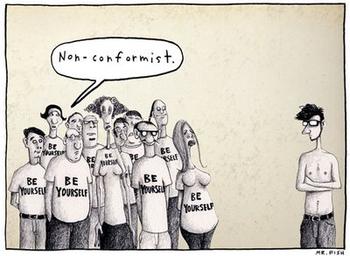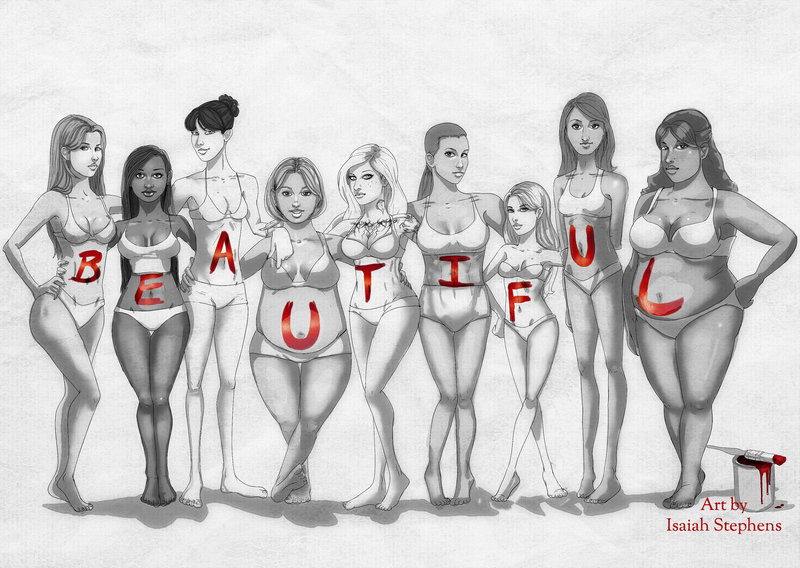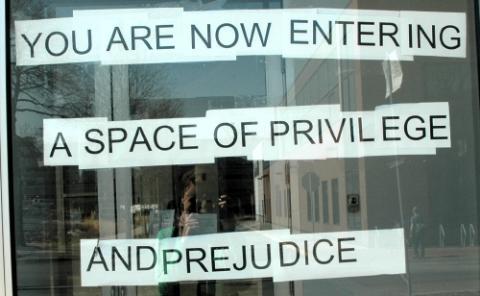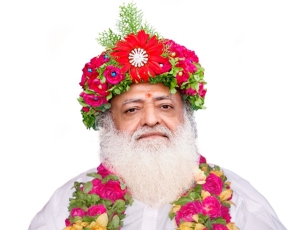Disclaimer: The authors speak from a cisgender, middle – upper class view focusing on fat shaming and do not cover other kinds of shaming. We strongly condemn the same and apologise for not fitting these important perspectives in our article.
A week ago, social media worldwide rejoiced at The People Magazine’s move featuring Tess Holliday as the publication’s cover with the words, “The World’s First Size 22 Supermodel!” splashed across the page in bold lettering. Responses were instantaneous; The People Magazine was lauded for spearheading the battle against body-shaming and the fashion industry’s promotion of anorexic models. But amidst the sound of cheering voices, a few questions remain unanswered.
Whoever was the world’s first “0-20 sized supermodel?” Are “plus-size” supermodels (as People Magazine refers to her,) different from non-plus size models? And if so, how? What is the publication trying to say when we use tag lines such as “plus size”? Is social media commending Holliday for becoming a model despite her being a size 22?

The ideal size of a model has changed over the years, as have notions of beauty. Today’s model wouldn’t be considered attractive 60 or so years ago. However, despite recognising that these standards change, we are hell bent on body shaming, o anyone who doesn’t fit the norm of an ‘attractive’ body, on placing restrictions on what men and women should look like and transforming our bodies into commercialised products, ready for consumption.
If, despite not fitting this bill, a model manages to make it big, we glorify her, giving her a pat on her back. “Oh you’re fat. But you made it,” or, “Oh you have small breasts, but you are a high fashion runway model- that is exciting!”
The problem begins with the epithet used to describe a woman like Tess- she is known as “plus sized.” She isn’t identified first as beautiful, or as a supermodel- though these things are truths- she is identified first as plus-sized. By this logic, if Holliday was a size 2, Tess may not have been made People magazine’s cover girl. The focus remains on size. If we are to truly integrate diversity in the fashion and modelling industry, what we should be doing is applauding her actual achievements, which is that regardless of one’s physical appearance, one can still achieve in society. Pointing out that she is a size 22 only diverts attention from her greater achievements, besides.
Of course, this raises the argument that not pointing out her size is dangerous because then we are not talking about how ‘fat’ women can make it big, too. The problem we have with this is that we continue to conform to society’s need to categorise people into sizes; to limit their achievements to the size they belong to rather than their hard work. We aren’t liberating ourselves by pointing out ‘plus-size’ achievements- we’re still conforming to what is seen as ‘normal’, and assuming plus size to be a deviation from that norm.

Hand in hand with the media and fashion industries, we have created the perfect body size: Long legs, large breasts, a proportionate butt, slim waist, and symmetrical face.. Over the years we shape and re-shape this image, not realising that human beings aren’t meant to fit into small boxes of perfect, and that we are larger than thin waistlines, D cup breasts and perfect hair.
Due to our patriarchal set-up, these impositions are largely on women. Of course this has also had some impact on men in the recent years. What ultimately happens is that we limit dialogue to men and women belonging to privileged sections of society and when a Tess happens to be successful, we feel ‘liberated’. But we aren’t. We forget what the social pressures to look good does to people from underprivileged economic backgrounds, people of different races, genders and age groups; in sum, anyone who is not part of the mainstream majority cultural group. For example, even though Tess is a size 22 model, she still is white. Though this is not a bad thing in itself, it needs to be remembered that among the models featured in the magazine, there is not a single black super model. The struggle of inclusion of African-American women in mainstream media has been a battle that is being fought for the longest time, and in a space of inclusion with ‘plus-sized’ models, African- American women still have to fight for that space.
Body shaming, especially fat shaming is rampant in a West dominated cultural environment- worsened by both mainstream and social media, and it has major effects on a non-conforming individual. Kids as young as 5 years of age get bullied because of their weight; are self-conscious about what they eat. Adolescent girls have made best friends with eating disorders and are then shamed for their anorexic figures. Our mothers look at chocolate the way we look at Channing Tatum- a longing for something they think they can never have.
 Discrimination and shaming on the basis of weight leads to decreased self-esteem, higher rates of depression, a distorted body image, feelings of shame with respect to one’s body and constant anxiety about how others see one’s self sand their opinions. The increases stress also contributes to poor physical health. It can lead to lowered life satisfaction, and puts people at a higher risk of gaining even more weight, instead of motivating them to shed excess pounds. Some sources say that being a ‘fattist’ is more dangerous than being racist or sexist. Despite all these negative effects, we perpetuate this system of making a person feel ashamed of their own body. Even if we move away from the construct of ‘health’, what we need to realise is that this kind of shaming affects one’s self-perception negatively. We’re constantly plagued by thoughts of not being good enough, of not being beautiful, of people judging us. We tell ourselves that we will never be successful in our careers, in love, if we are not pretty, sexy, ‘perfect’.
Discrimination and shaming on the basis of weight leads to decreased self-esteem, higher rates of depression, a distorted body image, feelings of shame with respect to one’s body and constant anxiety about how others see one’s self sand their opinions. The increases stress also contributes to poor physical health. It can lead to lowered life satisfaction, and puts people at a higher risk of gaining even more weight, instead of motivating them to shed excess pounds. Some sources say that being a ‘fattist’ is more dangerous than being racist or sexist. Despite all these negative effects, we perpetuate this system of making a person feel ashamed of their own body. Even if we move away from the construct of ‘health’, what we need to realise is that this kind of shaming affects one’s self-perception negatively. We’re constantly plagued by thoughts of not being good enough, of not being beautiful, of people judging us. We tell ourselves that we will never be successful in our careers, in love, if we are not pretty, sexy, ‘perfect’.
 As a culture we are exposed to and obsessed with body policing. We have grown up believing that our bodies were made to live up to the stares and belief systems of the society. And we need to stop. We need to allow ourselves to look at our bodies in full length mirrors without flinching, to allow ourselves to reside in them as people and not houses waiting to be remodelled.
As a culture we are exposed to and obsessed with body policing. We have grown up believing that our bodies were made to live up to the stares and belief systems of the society. And we need to stop. We need to allow ourselves to look at our bodies in full length mirrors without flinching, to allow ourselves to reside in them as people and not houses waiting to be remodelled.
Bear in mind, we aren’t thin shaming either. It doesn’t matter what size you are, how thin or fat, as long as you are happy with it, and are aware of your body and what’s happening to it. Being beautiful based on what the world wants you to be can be done on Photoshop, being the one true beautiful you, that only you can do. So if you’re a woman with a petite waist, prominent collar bones and slim legs, you are beautiful. If you have a waist as large as your heart, breasts as large as the universe, you are beautiful. We aren’t preaching, we mean it, because world #effyourbeautystandards.

So, here’s what we appreciate about a woman like Tess. Her presence in the industry remains a ray of hope, increasing representation (from zero to one) for women of many shapes and sizes. It allows for greater diversity; much needed in a world dominated by regulation of your diet and maintaining tiny figures even when your body screams blue murder.
Additionally, the confidence a woman like Tess radiates is also comforting to women of all sizes. It eases the pressure on women to conform to unrealistic beauty standards and exerts a positive influence on the modelling industry. That being said, the excessive use of Photoshop to make women look flawless, to make skin shine like we were in a Twilight movie STILL BOTHERS US. However, there is a reduction in the dissatisfaction women feel with their bodies when they see greater representation of people who look like them on screen. Representation is very important, and women like Tess serve as role models, so to speak, for women out there who aren’t ‘perfect’ by social standards, and who shouldn’t be perfect, and those women who have for a very long time in this century have been underrepresented. We believe this makes us more accepting of themselves and their bodies.

Thank you Tess, even with Photoshop and plus-size tagline, you give us hope.
About the Authors: (From Left):

Amla Pisharody is currently in her Third Year, soon to graduate in Sociology and Anthropology with an aim to work on Human Rights issues. She already possesses post doctorate qualifications in gastro indigestion and ghatti dancing. She loves reading, travelling, and insulting her near and dear ones (repeatedly). She believes in the power of hugs and opinions, sometimes given together, and is always ready to debate social issues, class divisions, feminism, evolutionary theory, and indigestion. In her free time, she talks to llamas.
Kavya Menon studies Psychology and Anthropology, which, contrary to her family’s long-standing beliefs, is not the study of insects. She loves little kids, but prefers animals. If she had the money, (which is highly unlikely when you major in the study of insects,) she would backpack around the world. Her abiding principles are the three golden Cs: Coffee, cheese, and chocolate. In her spare time, she steals umbrellas and likes to pretend that she is a cat (Spoiler: Actually is not). Her favourite animal is the llama.








